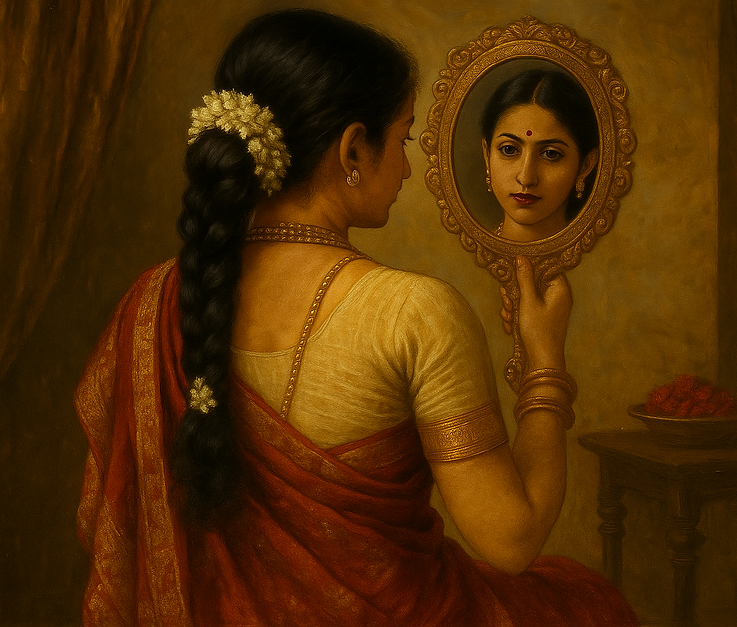ARANMULAS' MIRROR OF TRUTH
In the river-wrapped village of Aranmula, deep within Kerala’s lush interior, a small circle of artisans continues an art form so secret that its core formula remains unrecorded, shared only from parent to child in hushed succession.
For over five centuries, their craft has shaped not glass, but metal - molten, sacred, and luminous - into a mirror that refuses distortion. Each Kannadi is a meditation in patience, a reflection of devotion itself.

500 years of Pursuing perfection
According to legend, the first of these mirrors was created as an offering to Goddess Parvati
- its alloy born of reverence rather than metallurgy. The mirror became divine by intent, not design: an image so pure it was believed to reflect truth itself, unmarred by shadow or imperfection.
.png)
Over generations, it passed from temples to homes, from mothers to brides, as a vessel of blessing and continuity. In Kerala’s cultural tapestry, the Aranmula Kannadi is less an object than an inheritance - part ritual, part revelation.

Unlike common glass, the Aranmula Kannadi reflects from its very surface; there is no second layer, no separation between the image and the soul. What one sees is not behind the mirror, but upon it.
In that unbroken encounter lies its symbolism: purity without distance, truth without mediation. It is said that such reflection wards off negativity that where distortion cannot enter, ill fortune cannot dwell.
The secret alloy, known only to a handful of families, is heated until it glows like dusk, then poured into moulds and shaped by hands that have memorised every movement.
Weeks may pass before the first reflection appears - a shimmer that catches the artisan’s eye like a visitation. Only when it mirrors his face without distortion does he allow himself to breathe.


Aranmula Kannadi is not an ornament, but a relic. A rare continuity between hand, ritual, and reflection. It has transcended its craft, and refuses to surrender its essence.
"
Perhaps that is what makes it so resonant today. In a world of disposables, the Aranmula Kannadi remains incorruptible. It asks us to reconsider what we preserve - not merely the object, but the patience, the silence, the sanctity of making. It reminds us that permanence was once a virtue, not an exception.
"
.png)
Akhilesh Sankar, Director
_edited_edited.png)
As part of Zerene ’s cultural collaborations, this collaboration invites reflection in every sense- upon craftsmanship, upon lineage, upon the quiet dignity of those who still work by hand while the world hurries past.
To stand before an Aranmula Kannadi is to meet a reflection untouched by time - a mirror that does not flatter, but remembers.

_edited_edited_edite.png)